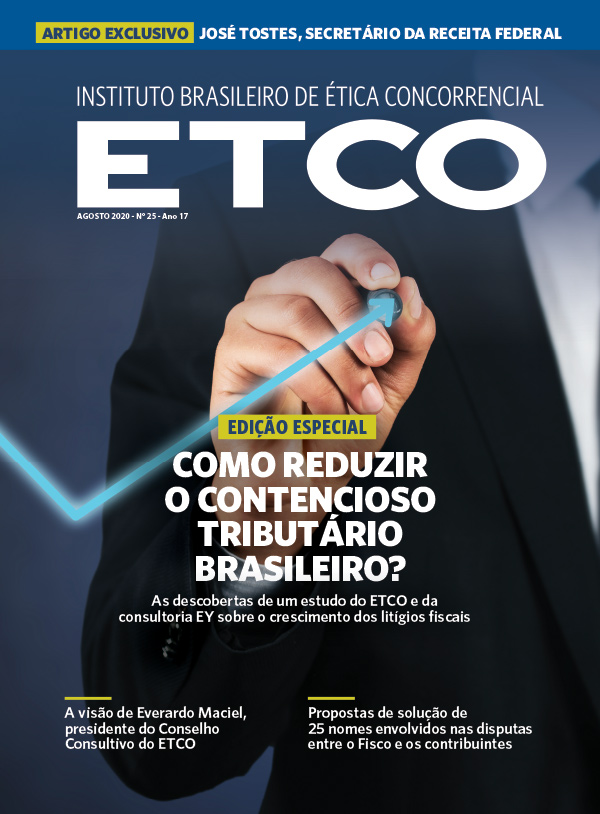"Brazil strives for things to go wrong"
 President of Insper and ex-secretary of Economic Policy, Marcos Lisboa says that following internationally established practices would be the simplest path for Brazil
President of Insper and ex-secretary of Economic Policy, Marcos Lisboa says that following internationally established practices would be the simplest path for Brazil
Economist with a doctorate from the University of Pennsylvania, in the United States, Marcos Lisboa has an eclectic professional trajectory, with experiences in academia, the public sector and the private sector. He was a professor at Stanford University, in the United States, and at the Fundação Getulio Vargas (FGV). He is the current president of Insper, a reference institution in higher education and research. He was secretary of Economic Policy at the Ministry of Finance between 2003 and 2005, during President Lula's first term. Subsequently, he became executive director and vice president of Itaú Unibanco, an institution where he remained until 2013.
For Lisbon, the priority given in the country to increasing tax collection, under the influence of the pressures caused by the fiscal crisis, leads to a series of evaluation errors and an excess of “creativity” to generate norms and establish concepts. He believes that it would be much more efficient to look at what other countries do and adopt good international practices. “I wouldn't need to invent, but here in Brazil we love to invent”, says the economist. Check out some excerpts from the interview below.

Tax system creates conflicts and does little to resolve them
The size that litigation has reached in Brazil is the symptom of a very serious disease. It reflects the problems caused by an extremely confused and dysfunctional tax system, a situation that has only worsened in recent decades.
It is normal for an environment of chaos to be more prone to conflict. Litigation is one of the most significant evidences of how much we need to reformulate our tax structure. Actions to deal directly with litigation can help, but they will always be palliative. If the system is crooked at the source, it is at the source that it needs to be corrected.
In addition to generating many conflicts, we do not have good mechanisms for managing them. Disputes between tax authorities and taxpayers become long, exhausting, expensive and uncertain, with no negotiation opportunities to be shortened.
International good practices are ready models
Brazil tries hard to make things go wrong. We have an excess of taxes, an unbelievable number of rules and a lack of clarity in the texts.
All kinds of “creativity” arise when the main objective is to increase revenue. We even invent concepts that have no counterpart in the real world. That mindset needs to change. The priority should not be to raise more, but to comply with the laws. Laws that are clear and fair.
There are also errors of assessment, such as insisting on collecting taxes at the place of production, and not at the place of consumption, contrary to the practice adopted in most countries. That is why good international practice is not to charge on exports, but on imports.
Most countries adopt a value added tax - that is, how much that step added value to the product. It is a simple tax to be calculated and collected. Just compare the notes: you paid so much and you sold so much.
In addition, we have different tax regimes, depending on the size of the company, the good or service produced and the region. Impressive complexity that distorts relative prices, which means that we induce companies to invest in activities that are not the most productive. The result is less economic growth.
So, actually, there is not much secret. What we would need to do is, basically, what other countries do. I wouldn't need to invent, but here in Brazil we love to invent.
I think that our role in this discussion is, to a large extent, to present international data, to bring the experience of other countries, against what is usual here.
Tax insecurity scares investors away
We are experiencing a fiscal crisis. We arrived at this point due to the sum of wrong choices that Brazilian society has made in the last decades.
The government's money was being distributed to several destinations considered to be priorities, without control and at a greater rate than the increase in revenue. We had recurrent fiscal crises, followed by measures to increase revenue. Until the sum of expenditures exceeded 100% of what is collected. And the worst thing is that almost all of these expenses are mandatory. The majority cannot be reduced even with a change in legislation.
The Brazilian tax chaos is aggravated by the attempt to micro-regulate, to take care of everything in the smallest detail so as not to miss any collection opportunity, often reviewing criteria that were widely accepted. But that's shooting yourself in the foot. It's killing the goose that lays the golden eggs.
Tax insecurity is one of the main reasons why foreign investors are leaving the country. And it is understandable, as investing in Brazil becomes something daring for companies that are faced with the need to deal with all of this.
In this story, there is no villain and there will be no hero
All parties have a share of responsibility for the framework we have reached. Government, Tax Authorities, taxpayers, companies, politicians, legislators, Justice.
Therefore, the solution is not to search for the guilty or to demonize differences, but to dialogue. There is no villain, and there will be no hero who solves everything on his own.
What exists is the need to find ways out. In this way, it will be necessary to give up small, specific, even petty interests, which are often evoked to combat alleged sectoral losses or defend the maintenance of some kind of privilege. The looks need to be broader.





 Getap's executive director, Zabetta Macarini Gorissen, says that Brazil has grown accustomed to resorting to litigation instead of acting directly at the source: improving tax legislation
Getap's executive director, Zabetta Macarini Gorissen, says that Brazil has grown accustomed to resorting to litigation instead of acting directly at the source: improving tax legislation Economist Lorreine Messias, author of studies on the subject, says that structural reform is necessary - and recalls that other countries can set good examples of how to do this
Economist Lorreine Messias, author of studies on the subject, says that structural reform is necessary - and recalls that other countries can set good examples of how to do this The president of Unafisco, Mauro Silva, points out the need to expand professional improvement initiatives for the staff of tax auditors of the Federal Revenue
The president of Unafisco, Mauro Silva, points out the need to expand professional improvement initiatives for the staff of tax auditors of the Federal Revenue Attorney Juliana Araújo, PGFN coordinator at TRF-3, says what the three involved in the issue should do to reduce litigation
Attorney Juliana Araújo, PGFN coordinator at TRF-3, says what the three involved in the issue should do to reduce litigation PGFN Attorney Leonardo Alvim defends tax reform and specific measures to increase legal certainty in the tax field
PGFN Attorney Leonardo Alvim defends tax reform and specific measures to increase legal certainty in the tax field Adriana Gomes de Paula Rocha, Deputy Attorney General of Consultancy and Strategy of the Judicial Representation, talks about the reasons for the congestion of tax processes in the Judiciary
Adriana Gomes de Paula Rocha, Deputy Attorney General of Consultancy and Strategy of the Judicial Representation, talks about the reasons for the congestion of tax processes in the Judiciary The ways to reduce litigation, in the view of the Deputy Attorney General for Consulting and Administrative-Tax Litigation, Phelippe Toledo Pires de Oliveira
The ways to reduce litigation, in the view of the Deputy Attorney General for Consulting and Administrative-Tax Litigation, Phelippe Toledo Pires de Oliveira
